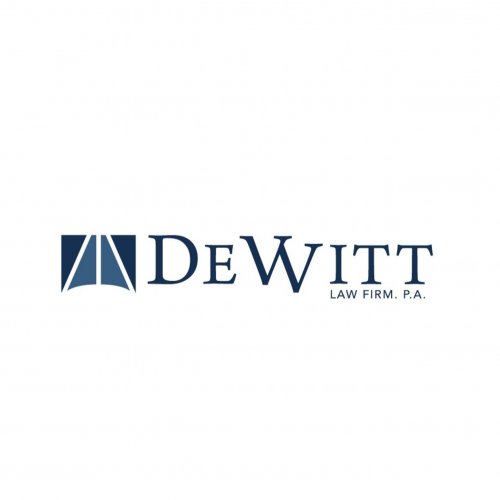Best Commercial Real Estate Lawyers in Florida
Share your needs with us, get contacted by law firms.
Free. Takes 2 min.
Free Guide to Hiring a Real Estate Lawyer
Or refine your search by selecting a city:
List of the best lawyers in Florida, United States
About Commercial Real Estate Law in Florida, United States
Commercial real estate law in Florida covers the legal rules and regulations governing property intended for business use, rather than residential purposes. This includes office buildings, shopping centers, warehouses, hotels, industrial properties, and other commercial structures. The practice of commercial real estate law involves a comprehensive range of issues such as acquisitions, sales, leasing, zoning, financing, land use, construction, and property management. Florida's dynamic economy and rapid growth mean that commercial real estate transactions often involve significant investments and complex legal considerations.
Why You May Need a Lawyer
Commercial real estate transactions can quickly become complicated due to the substantial financial stakes, complex laws, and numerous parties involved. Here are some common situations where seeking legal advice is crucial:
- Drafting, reviewing, or negotiating purchase agreements, leases, or sale contracts - Handling disputes between landlords and tenants - Navigating zoning, land use, or permitting issues - Conducting due diligence before a property acquisition - Structuring and closing financing deals - Resolving construction, title, or boundary disputes - Addressing environmental compliance and liability - Managing risk and ensuring contract compliance - Handling foreclosure or distressed property scenarios
An experienced commercial real estate attorney can provide critical guidance during negotiations, protect your interests, ensure compliance with state and local laws, and help prevent costly legal mistakes.
Local Laws Overview
Florida's commercial real estate landscape is shaped by various state statutes, local ordinances, and administrative regulations. Key aspects to be aware of include:
Zoning and Land Use: Local governments regulate land use and zoning, impacting how a property can be developed or used. Rezoning, variances, and special exceptions require careful legal handling. Commercial Leasing: Florida law allows significant freedom to negotiate lease terms, but issues like default, renewal options, rent increases, and maintenance responsibilities should be clearly defined. Disclosure Requirements: Sellers and landlords must follow disclosure obligations related to property condition, environmental hazards, and material defects. Title and Ownership: Florida requires a thorough title search and often title insurance to protect buyers and lenders from potential claims against the property. Transfer Taxes and Fees: Document stamp taxes and intangible taxes apply to many commercial real estate transactions. Environmental Regulations: Compliance with federal and state environmental laws, such as proper handling of hazardous materials, is critical. Foreclosure and Distressed Properties: Foreclosure procedures are judicial in Florida, meaning they go through the court system and have specific notice and process requirements.
Frequently Asked Questions
What is considered commercial real estate in Florida?
Commercial real estate includes properties used for business purposes, such as offices, retail spaces, industrial properties, warehouses, hotels, and multi-unit apartment buildings (generally over five units).
Do I need a lawyer for a commercial real estate transaction?
While not legally required, it is highly recommended to consult with a lawyer. Commercial transactions are complex and legal counsel can protect your interests and help avoid costly mistakes.
What due diligence should I perform before purchasing commercial real estate?
Due diligence may include reviewing the title, examining zoning and land use restrictions, inspecting the property for physical or environmental issues, reviewing leases or service contracts, and assessing compliance with applicable laws.
What are my responsibilities as a commercial landlord in Florida?
Commercial landlords must ensure their properties are safe and meet any contractual obligations in the lease. Responsibilities can include maintenance, disclosure of known defects, and compliance with state and local codes.
How are commercial leases different from residential leases in Florida?
Commercial leases are more flexible and less regulated than residential leases. Terms are negotiated case by case and can vary greatly regarding rent, maintenance, duration, termination rights, and tenant improvements.
How do zoning laws affect commercial property use?
Zoning laws determine what activities can take place on a property. Using a property in a way not permitted by zoning can result in fines or forced cessation of business activities.
What are the typical costs associated with commercial real estate transactions?
Typical costs include purchase price, due diligence expenses, attorney's fees, brokerage commissions, title insurance, survey costs, property inspections, and taxes such as documentary stamp taxes or intangible tax.
What is a title search and why is it important?
A title search examines public records to verify legal ownership and identify any claims, liens, or encumbrances on the property. This protects buyers and lenders from legal disputes after purchase.
How do I resolve a dispute with a commercial tenant or landlord?
Dispute resolution often involves reviewing the lease agreement, negotiation, mediation, or legal proceedings. An attorney can evaluate your case and recommend the best action based on your lease terms and applicable law.
Are there special environmental concerns in commercial real estate transactions?
Yes, buyers and tenants must be aware of potential environmental problems, such as contamination or hazardous materials. Environmental assessments are standard in commercial transactions to identify and manage these risks.
Additional Resources
- Florida Department of Business and Professional Regulation (DBPR): Oversees licensing and regulation of real estate professionals - Florida Bar Real Property, Probate & Trust Law Section: Offers information and publications on real estate law - Local county property appraiser's offices: Property records, tax information, and zoning data - Florida Association of Realtors: Resources and guidance for commercial property buyers, sellers, and brokers - U.S. Small Business Administration (SBA) Florida District Offices: Guidance on financing commercial real estate for small businesses - Local city or county zoning and planning departments: Zoning maps and land use regulations
Next Steps
If you need legal assistance with a commercial real estate matter in Florida, consider the following steps:
1. Gather all relevant documents, such as contracts, correspondence, property information, and financial records. 2. Make a list of your questions and objectives for the property or transaction. 3. Identify and consult with an experienced Florida commercial real estate attorney who understands local laws and market conditions. 4. Work closely with your attorney to review your case, develop a strategy, and ensure that all legal requirements are met. 5. Stay informed and engaged throughout the process to protect your rights and interests.
By seeking informed legal advice, you can approach commercial real estate transactions and disputes with confidence and minimize the risk of unexpected complications.
Lawzana helps you find the best lawyers and law firms in Florida through a curated and pre-screened list of qualified legal professionals. Our platform offers rankings and detailed profiles of attorneys and law firms, allowing you to compare based on practice areas, including Commercial Real Estate, experience, and client feedback.
Each profile includes a description of the firm's areas of practice, client reviews, team members and partners, year of establishment, spoken languages, office locations, contact information, social media presence, and any published articles or resources. Most firms on our platform speak English and are experienced in both local and international legal matters.
Get a quote from top-rated law firms in Florida, United States — quickly, securely, and without unnecessary hassle.
Disclaimer:
The information provided on this page is for general informational purposes only and does not constitute legal advice. While we strive to ensure the accuracy and relevance of the content, legal information may change over time, and interpretations of the law can vary. You should always consult with a qualified legal professional for advice specific to your situation.
We disclaim all liability for actions taken or not taken based on the content of this page. If you believe any information is incorrect or outdated, please contact us, and we will review and update it where appropriate.
Browse commercial real estate law firms by city in Florida
Refine your search by selecting a city.













